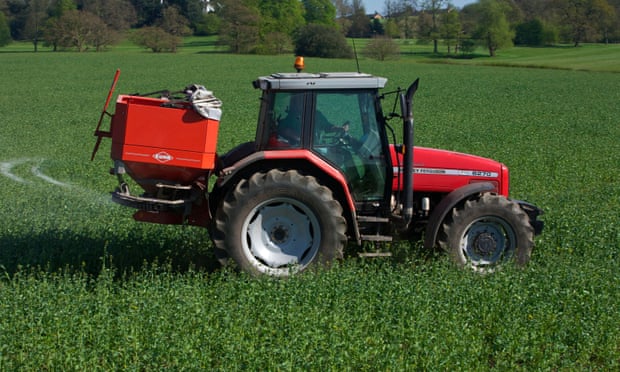What happened on 28th July 2023 - With your comments in the Web
On Friday, the BBC reported on the MoD accidentally emailing Russian ally instead of the US colleagues.
The emails were intended for the US military, which uses the domain name ".mil". But they missed out the letter i, and so the messages went instead to the West African nation of Mali.
Defence officials say the emails did not contain information that could compromise operational security. The mistake, they said, involved only a small number of emails being sent to Mali, whose email domain is ".ml".
"We have opened an investigation after a small number of emails were mistakenly forwarded to an incorrect email domain," an MoD spokesman told PA news agency. "We are confident they did not contain any information that could compromise operational security or technical data."
The spokesman added that all sensitive information used by the government department was "shared on systems designed to minimise the risk of misdirection".
Yet, this curious fail couldn't surprise any advanced British user.simple typo reportedly directed millions of emails with sensitive information to the African country Mali rather than their intended U.S. military recipients.
For years, a misspelling of “.MIL” in the suffix of military email addresses as “.ML” — the country domain for Mali — unintentionally led to a “typo leak,” according to The Financial Times, which first reported the story. As a result, everything from diplomatic documents, tax returns, passwords and travel details of top officers has been exposed, the outlet noted."
"To quote Yes, Prime Minister its not too bad as they already know everything that we do. But still! The sheer incompetence!"
Also on Friday, it became known that forty per cent of those in their 20s heading for poverty in retirement.
The life office and pensions provider has launched the National Retirement Forecast (NRF) which aims to provide "forensic analysis of the challenges faced by different demographics".
The NRF uncovered significant polarisation among the amount people of different generations could retire on and that 36 per cent of savers were heading for a comfortable retirement compared to the 35 per cent projected to struggle.
It used the Pension and Lifetime Savings Association (PLSA)’s retirement living standards levels find out what levels of income people were set to achieve when they stopped working: it compared the retirement lifestyles within reach for different ages, ethnicities, genders and employment statuses, and included underrepresented groups such as disabled people and the LGBTQ+ community.
Scottish Widows claimed to have the most inclusive picture of UK savings to date. It found:
● Almost half - 43 per cent - of the people predicted to struggle in retirement expect to be still paying rent
● Rental costs amounted to 60 to 70 per cent of renters’ retirement income in several parts of the country, but this figure rose to 130 per cent in London
● Almost half of people currently in their 20s are heading for hardship in retirement, with an average retirement income of £10K among this group
● 43 per cent of Millennials are on track for a comfortable lifestyle, reflecting strong savings behaviours and the benefits of automatic enrolment
● On average, women will receive a third less income in retirement than men, £12,000 compared to £19,000 a year
● Half of Brits have not checked whether they are entitled to the full state pension.
36 here. I'm glad I never went to university and instead went out aged 18 into the world of work and got my qualifications in both Project and Product Managment etc all on the job while working and so ended up with lots of additional years of experiance, knowledge as well as the certification.
Out of our friendship group its telling that the only 3 of us who are on the property ladder and comparatively well off are the 3 of us who never went to uni.
It's almost like the whole "you must go to uni" mantra is a total lie"
On Friday as well, the Independent informed Brits about how British Gas made almost £1bn profit despite energy price caps.
British Gas made a record profit of £969m in the first half of the year, after the energy regulator Ofgem raised the energy price cap to compensate suppliers for previously setting it too low.
Britain’s biggest household energy provider, which supplies 7.5 million households, saw its profits rocket to 10 times more than the £98m it made in the same period last year, breaking its previous record of £585m in the first half of 2010.
Centrica, which owns British Gas, chalked up a record interim profit of £2.1bn. It announced it will reward investors by paying an increased dividend of 1.33p per share and buying back a further £450m of its own shares. To try to limit the controversy over that, it will provide £50m more support to help customers struggling with energy bills that for many households are still double what they were a year ago.
The common opinion of users about energy companies is:
"Making electricity as cheap as possible should be one of the government's top priorities. Energy prices are the single biggest controllable input to the economy, and arguably making energy cheaper has been the biggest driver of growth throughout history.
Aiming for net zero does make this more difficult, but certainly not impossible with sufficient government action. It's just that, perhaps until recently, talking about electricity prices wasn't a huge vote winner."
"Take few million poor people ...fit their properties with "Smart Meters" that only work on R1 (day) rate and watch money roll in as poor all rush to use their washing machines at night thinking it is cheap energy ...
As far as regulators ...they are all thieves just like those they are supposed to be "watching"..."
"Tens of billions of £££s spent on the NHS during COVID, but the NHS got none of it and actually had its core funding cut. Where did that money go? Energy companies making obscene profits whilst customers pay through the nose to heat their homes. Supermarkets raising prices to customers, whilst reducing payments to farmers. Fuel companies raising prices at the pumps and keeping them high, whilst wholesale prices fall. Oh, look, over there, a racist has lost his bank account! And there, squirrels! And Wokes! And the British people swallow it, they look away from what's important and focus on the nonsense, and the corporate interests continue ripping us off, ably assisted by corrupt and incompetent government. Bread and circuses, to stop us rising up and doing what needs to be done - overthrowing the current system."
Another important news of Friday was that British crop yields rise despite cut in fertiliser use.
Britain’s farmers increased their yields of major crops last year despite significant reductions in fertiliser use, according to research.
Making artificial fertilisers relies on natural gas, the price of which rose sharply last year after Russia’s invasion of Ukraine. Fertiliser prices almost tripled, from £233 a tonne in 2020 to £766 a tonne in 2022, which farmers say led to a reduction in their use.
Data from the Department for Environment, Food and Rural Affairs (Defra) published last week revealed that for key crops – wheat, barley, oilseed rape and sugar beet – fertiliser use decreased by an average of 27% compared with the 2010-19 average. Despite this, yields of those crops were 2.4% above average compared with the same period.
An exception to the trend was the 10% increase in the use of fertilisers
in the cultivation of potatoes, with a 8.6% reduction in yield.
Using of fertilisers raised a discussion among Redditors.
"I would say that they should all find the sweet spot, using as little fertiliser as possible. A better yield with less pollution, and less costs for the farmers because they don't have to purchase (as much) fertilisers any more. Where are the disadvantages of such a move?"
"They need to return to traditional methods where you don't need artificial fertiliser. It's the only way to preserve the rivers and top soil."
"This realistically isn't financially sustainable, however there is a solution to this that neatly solves the problem: Directly paying farmers for maintaining and expanding environmental and ecosystem restoration work on their land. A carbon tax would be the ideal system to pay for this as well. If you wanted a more complicated system you could introduce direct carbon sequestration payments by ton, but that's a massive effort to figure out"
"Artifical fertilisers are energy intensive to produce and do little to improve soil health. Normally because they are used alongside herbicides and pesticides.
The sweat spot won't be a specific quantity year to year. Extensive soil testing would help you form a picture of where the sweet spot might be for the season, but that's also expensive and not cost effective to the less flexible farmer."




.jpg)
Comments
Post a Comment